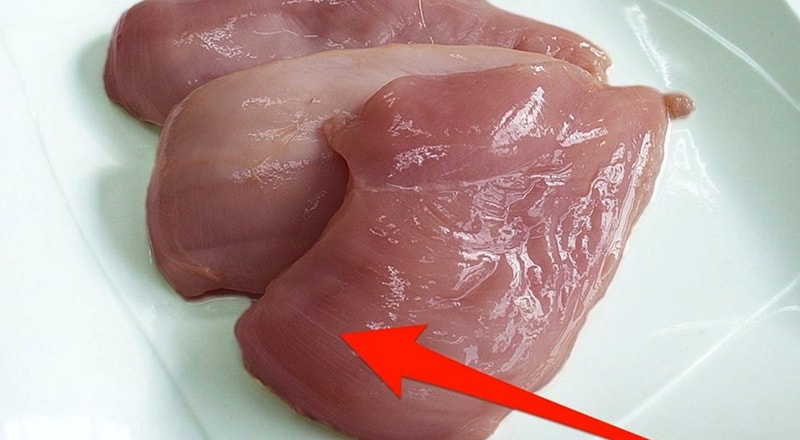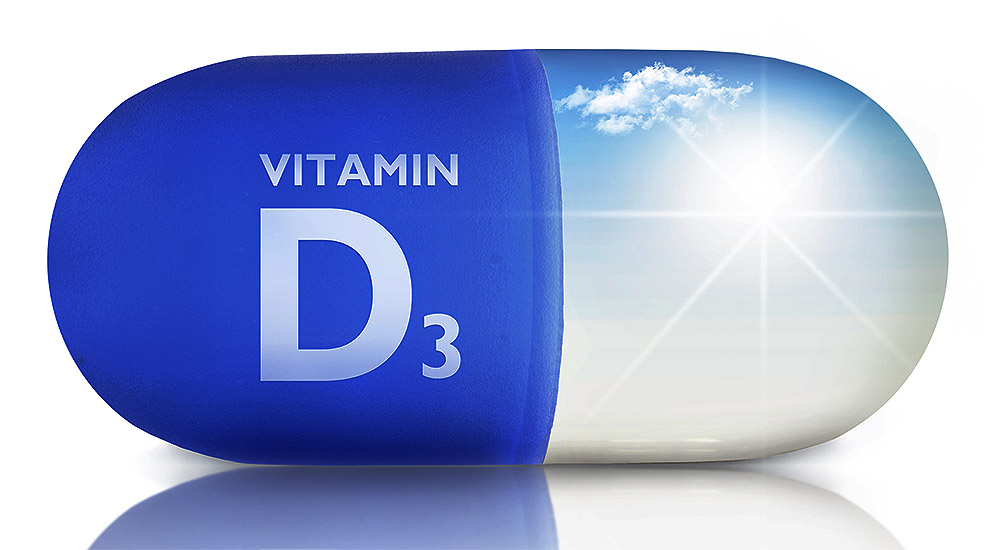Is Chicken Low in Fat?

Is white meat chicken healthier than beef?
Every day a new patient tells me they eat chicken instead of beef in an effort to eat healthier. Whether they are trying to lose weight, lower their cholesterol, improve diabetes, or some other condition, most Americans are convinced that chicken is a lot healthier than beef.
Chicken is lower in fat, right?
Heart disease is our number one killer; in an effort to decrease risk, doctors and governmental agencies around the world agree that saturated fat intake should be reduced.
Red meat, butter, cheese, and eggs have been cited as the big bad saturated fat villains. It’s not wrong; those foods ARE high in saturated fat.
Some renegade studies can be found citing butter and beef to be healthy for you, but those studies are typically funded by researchers on the dole from the beef and dairy industries.
Health authorities agree…
The U.S. Institute of Medicine, the European Food Safety Authority, the American Heart Association, and the American College of Cardiology all agree, reducing trans fat and saturated fat found in animal meat and dairy is a top priority to reduce the incidence of heart disease. [Remember, what’s good for reducing heart disease risk, also lessens your risk of diabetes and cancer.]
Where does chicken rank in cholesterol-raising fat?
The National Cancer Institute’s list of “Top Food Sources of Cholesterol Raising Fat” cites chicken in 4th place after three forms of dairy:
1. cheese
2. dairy milk
3. pizza
4. Chicken
Where did beef fall? Burgers came in 7th after sausage, hot dogs, bacon, and ribs, which together held the 6th position.
Beef, of course, is not low in saturated fat, even though it beats out the chicken. But chicken IS worse than beef and only second to dairy.
The beef industry “brags” they have less saturated fat than chicken
Not surprisingly, the beef industry was delighted to discover they were lower in saturated fat than chicken, and they let it be known. But let’s be clear, ranking 7th place in dangerous heart disease-causing fat vs 4th place, doesn’t make you a health food. Beef is still a problem; beef is still high in saturated fat and linked to heart disease and cancer.
The study finds plant protein no better than animal protein. What??
How should you react when you hear about a study that found no improvement of bad cholesterol when participants were switched from animal-based protein to plant-based protein? How can that be?
When you see headlines stating results from research that don’t quite make sense, it underscores the important of 3 things:
1. You must read the entire study, not just the headlines.
2. You must find out who funded the study.
3. You must know any conflicts of interest cited by the authors of the study.
If you don’t have a full grasp of all the data, the “sensational” headline would lead you to believe that plant protein and animal protein alike raise your bad cholesterol. It’s not true.
Multiple studies confirm plant-based diet lowers cholesterol
But study after study shows that those consuming a plant-based diet have some of the lowest levels of cholesterol and thereby lowest risks of cardiovascular disease. How can both be true?
Had the study been read in its entirety it would have been clear that the researchers were trying to differentiate between the two types of protein, animal vs plant, but they wanted to keep the fat stable. Therefore they included 3 tablespoons of beef lard in the plant group and 3 tablespoons of plant-based margarine in the animal group.
Of course, adding beef lard to the plant-based protein eaters negated the benefit and left their bad cholesterol virtually unchanged, although there was still some small benefit in the plant group.
The “headline” didn’t state that clearly.
The study was clear; the headline was misleading
Confusion is exactly what industries like chicken, beef, and dairy are striving for. They want to confuse you to the point you think it really doesn’t matter what you eat, so you may as well eat what you enjoy. E.g. Enjoy Life – Drink Coke.
Don’t fall for their tactics. I’m here to give it to you straight, make eating delicious, and getting healthy as simple as possible.
What should you do to lower your bad cholesterol?
If you’re wondering how best to lower your bad cholesterol, here are the results from three dietary scenarios and how they affected LDL (bad) cholesterol:
1. Reduce dairy, eggs and fatty meat [remember this included chicken] – 5-10% reduction of bad cholesterol.
2. Adopt a vegetarian or flexitarian diet [mostly vegetarian] – 10-15% reduction of bad cholesterol.
3. Adopt a healthy plant-based diet – 15-35% reduction of bad cholesterol. Obviously the clear winner.
Which one would you like to accomplish? Better yet, which do you need to accomplish? Remember, optimal LDL levels are 50-70, far lower than a traditional lab reference value, but the levels that fully protect you against heart disease. Pull up your most recent blood test and see what your levels are.
Why is chicken so fatty?
I didn’t mention why chicken is so high in saturated fat. If you saw the size of chickens about 60 years ago vs today, you’d see the problem; the chickens are over four times larger today. They have been bred to be larger and their fat content is higher. Fat content is so high today that chicken may have more fat than it does protein. That’s great when you’re trying to keep your chicken breast juicy, but not when you’re trying to avoid heart disease, our number one killer.
Look for very thin white striping, or lines, within the muscle on your raw chicken breast. Striping has become much more common -it’s fat. A 2016 study conducted by the University of Arkansas and Texas A&M, revealed that when 285 birds were tested, 96% had white striping. They also noted that chickens are marketed in half the time they were 50 years ago.
Not surprisingly, a spokesperson from the National Chicken Council, states the number of chickens to be affected with white striping (excess fat) is minimal. Does 96% sound minimal to you?
I think I made the point that white meat chicken is no longer a healthy food nor a low-fat choice. Don’t worry, there’s still plenty of delicious food to eat.
Do you need help with your health?
We have the diagnostic and testing tools, the clinical experience, and a different medical approach to discovering the root cause of why you have the symptoms that are bothering you. As long as you are ready to make some dietary and lifestyle changes, we can help you. We will "hold your hand" through the changes, step by step, to make each step an easy one. We are located in Clearwater, FL, at 1000 S Ft Harrison, at the corner of Ft. Harrison Ave. and Magnolia St. There is plenty of parking space directly accessible from Ft Harrison. If it is not convenient for you to come to Root Cause Medical Clinic, we offer telehealth/telemedicine consultations to residents of certain states. Call us for details.
Contact us for a Consultation – Call 727-335-0400

Dr. Vikki Petersen DC. CCN
Founder of Root Cause Medical Clinic
Certified Functional Medicine Practitioner
Dr Vikki Petersen is a public speaker, author of two books, several eBooks and creates cutting edge content for her YouTube community. Dr Vikki is committed to bringing Root Cause Medicine and its unique approach to restoring health naturally to the world.
Ask a Doctor
Have a health concern you'd like to speak with a doctor about? Or just want clarity on a subject? Ask Us!
Featured Articles
Popular Stories
References:
1.R K Harika, et al. Intake of fatty acids in general populations worldwide does not meet dietary recommendations to prevent coronary heart disease: a systematic review of data from 40 countries. Annals of Nutrition and Metabolism. 2013;63(3):229-38.
2.J Aranceta, C Perez-Rodrigo. Recommended dietary reference intakes, nutritional goals, and dietary guidelines for fat and fatty acids: a systematic review. British Journal of Nutrition. 2012 Jun;107 Suppl 2:S8-22.
3.R H Eckel, et al. 2013 AHA/ACC guideline on lifestyle management to reduce cardiovascular risk: a report of the American College of Cardiology/American Heart Association Task Force on Practice Guidelines. Circulation. 2014 Jun 24;129(25 Suppl 2): S76-99.
4.R Chowdhury, et al. Association of Dietary, Circulating, and Supplement Fatty Acids With Coronary Risk. Annals of Internal Medicine 2014; 160(6): 398-406.
5.V.A. Kuttappan, et al. Pathological changes associated with white striping in broiler breast muscles. Poultry Science 1 February 2013; 331-338.
6.M Petracci, et al. Effect of White Striping on Chemical Composition and Nutritional Value of Chicken Breast Meat. Italian Journal of Animal Science 18 February 2016.


